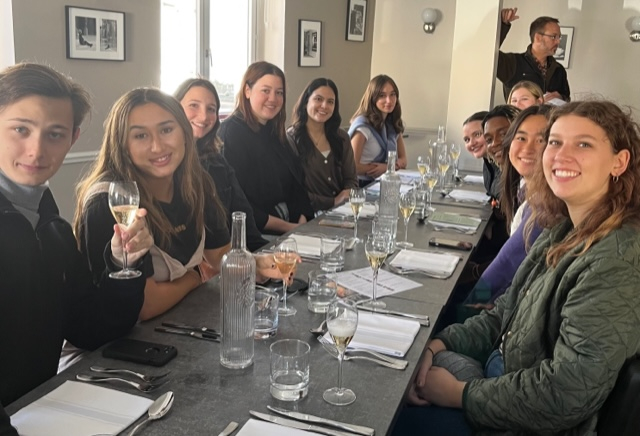The Sophomore Mentoring Program Experience

In Spring 2020, right at the beginning of the COVID-19 pandemic, Chloe Delesbeck and Serena Leilani, two upperclassmen at AUP, noticed that while first years get lots of guidance and resources to help them settle in, sophomores have less support while still trying to figure out life, both on campus and outside of university. They wanted to create a program where sophomores could feel more supported by receiving help regarding their majors, life at AUP or life in Paris.
From that idea, the Sophomore Mentoring Program was born.
The program is simple - during their sophomore year, students can apply to be matched with a student mentor based on preferences regarding majors, life experiences, gender, and general background. Each month, mentors meet with their mentees and help guide them through life on and off campus.
The program is housed under Student Development with Kevin Fore as the advisor of the program and they are also considered to be a club. "It’s not necessarily a club where we have meetings and events, it’s more," said Ria Phi, the programs outreach director, adding that, "there is a different process where mentors have to apply and go through training.” This might help sustain the future of the program as since the pandemic, they have had a trouble finding members and creating that community between sophomores.
Members said that creating a team spirit is an essential part of this program and it seems to have gotten harder to do so. Leaders expressed their concerns about the future of this program emphasizing how community at AUP needs improving. They mentioned that finding members and creating community between them has been a continual challenge.
"Our main goal is reaching more people because even though there has been participation, we definitely want to see it be a more established thing on campus to make it more sustained as well," said Phi.
To try and solve the problems it's faced recently, it has hosted different activities for members to participate in throughout the past semester. In October, club leadership organized a day trip to Reims, where students visited the Notre-Dame de Reims cathedral and participated in a local champagne tasting. In the past, the club has also taken a day trip to Fontainebleau, hosted community mixers, visited an escape room, and even held a zip lining session.
“Overall, we are growing the program by trying to spend time together and I think having the one-on-one relationships between the pairs makes the activities a lot more stronger and bonded,” said Morgan Smith, the programs administrative director.
Fatima Atty Djibrine, the organizational director who was a first-batch mentee and is now a part of the organization as a mentor, talked about her own story with the program. “When I came in, I was super shy as a mentee and my mentor was heavily involved with many activities on campus, advocating for many things which really pushed me to develop myself and grow my identity. This pushed me to be a mentor and give back what I was able to get.”
Students can participate in the program for one or two semesters, and meetings between mentor-mentee pairs happen at a frequency they decide on, with a minimum of once a month according to the program's rules.
“it’s a 50-50 relationship,” said Leah Nagpal, a mentor in her junior year, "and both of us have an equal say in our relationship."







